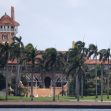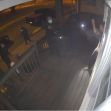Several families are in a battle with the FBI after hundreds of safety deposit boxes from a private vault company, U.S. Private Vaults, were confiscated following the execution of a search warrant in March. The Raid which lasted five days resulted in over 800 safe deposit boxes confiscated by the FBI.
U.S. Magistrate Steve Kim approved the search warrant but set some limitations. Kim stated that the FBI could seize the boxes but could not seize the contents inside the boxes. The search warrant details, “This warrant does not authorize a criminal search or seizure of the contents of the safety deposit boxes.”
Despite the orders in the search warrant, the FBI is alleging that they have rights to the over $86 million in cash that was confiscated during the raid. There are millions more in assets customers of the vault company stored away including jewelry, watches, heirlooms, and other valued memorabilia.
According to the FBI, they explain that they have a fair right to keep the confiscated money because it belongs to unnamed box holders who were dealing in criminal activity. Despite their allegations, the FBI has not provided any proof supporting this.
Thom Mrozek, a spokesman for the U.S. attorney’s office in Los Angeles, defended the government's action stating, “We have some basis to believe that the items are related to criminal activity.”
Along with the cash, there are thousands of gold and silver bars, Rolex watches, and jewelry with valuable gems and stones that the FBI wants to confiscate. In one box, there are over $1.3 million in poker chips from the popular Las Vegas casino, Aria.
The contents of 175 boxes are in the process of being returned to their rightful owners, and the FBI has already given back the contents of at least 75 boxes. With the remaining boxes, it's not clear who owns the contents yet.
According to the Los Angeles Times, one box holder was made out to be a criminal because he used the company to store away his cash savings. Joseph Ruiz, 47, explains that he stored $57,000 in cash because he did not trust traditional banking institutions. Ruiz, the son of a retired LA police officer, received the money through two major settlements, one which resulted from chronic housing code violations in the apartment complex where he lived and the other a settlement from a car accident that caused him a spinal injury.
The FBI denied Ruiz's request to have his money returned. “I’m made out to be a criminal, and I didn’t do anything. I’m a law-abiding citizen,” Ruiz explained. He adds, “They stole my stuff. When I was there, they asked if I was part of the cartel.”
Ruiz has joined in on a class-action lawsuit with Jennifer and Paul Snitko against the government for their unlawful possession of the contents of the safety boxes. The Snitkos also used U.S. Private Vaults to store away prized possessions including a flight log, sensitive documents, and family heirlooms. Their lawsuit is one of at least seven which have been filed against the government for unlawful seizure of property. The lawsuit also argues that the FBI is violating box holders' Fourth Amendment protections of unreasonable searches and seizures as well as their Fifth Amendment rights of protection against self-incrimination.
Like many of the box holders, the Snitko family is being forced to prove their identity before they can claim their rightful ownership of the contents of their boxes. Attorney for the box holders, Jeffrey B. Isaacs, explains that the FBI is operating in excessive force because they are trying to “extort people into exposing their identities in order to investigate them.” Isaacs explains, “It’s unprecedented, and I think it’s very dangerous.”
The Institute of Justice shared a statement on behalf of the Snitko family and all others named in the class-action lawsuit. In their statement, they explain, “The FBI now refuses to give anyone their property back until they come forward and submit to an 'investigation.' In other words, the government wants to force people to prove their own innocence to get their own stuff back.”
Benjamin Gluck, another attorney representing box holders, explains that the government “can’t take stuff without evidence in the hopes that you’re going to get it later.” Gluck adds, “The Fourth Amendment and the forfeiture laws require the opposite — that you have the evidence first, and then you can take property.”
The search warrant against the US private vault company was initiated because of suspicions that the company was marketing itself as a safe haven for criminals who wanted to store money and other stolen goods. Despite the indictment naming U.S. Private Vaults as the entity committing federal crimes, not the customers, box holders remain in limbo as to whether or not they will see their prized possessions again.






